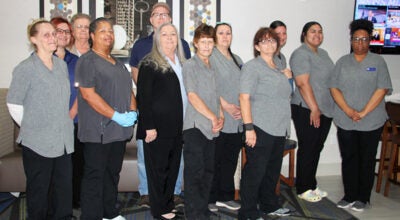No clients yet for drug court
Published 11:59 pm Tuesday, July 21, 2009
No one has submitted an application for the county’s new drug court, district attorney Greg Gambril said Tuesday.
Gambril said beginning after midnight on July 15, each person booked into the Covington County Jail — regardless of the charge — is given a drug court screening form at some point within 72 hours of his or her arrest.
The form explains the program as “an intensive substance abuse program and court monitored supervision” that requires first-time offenders to plead guilty to their charges by way of a plea agreement. That agreement includes a predetermined sentence; however, that sentence is “held off” while participating in the program. Upon successful completion, the charges are dismissed, but if one fails the program, the predetermined sentence is imposed.
“Once they fill the screening form out, which contains a specific statement that applying for drug court is in no way an admission of guilt nor can it be used against them in court, the form is to be forwarded to my office to see if the applicant fits all of the eligibility criteria set out by the state and federal guidelines on drug court and by our local court,” he said.
Eligible applicants will then meet with drug court staff that will explain exactly what the program entails and to fill out a complete in-depth application, he said. If the applicant decides to participate, then the forms are submitted to the drug court team and the final decision is made, he said.
Since July 15, there have been 12 people have been booked into the county jail on various types of drug charges, but none have expressed an interest in the program, he said. There are 20 available slots in the program, he said. Participants must pay a $1,500 drug court fee, and there are payment options available. Additionally, there is a $20 charge for each urinalysis test.
“We fully expect that it will take a while for this to catch on,” Gambril said. “Obviously, the participants are put on a payment plan that they can afford. For example, someone obviously can’t pay while in rehab; someone who is indigent doesn’t have the means to pay at first, but the program will help them find a job and obtain the skills that they need to get that job, etc.”




